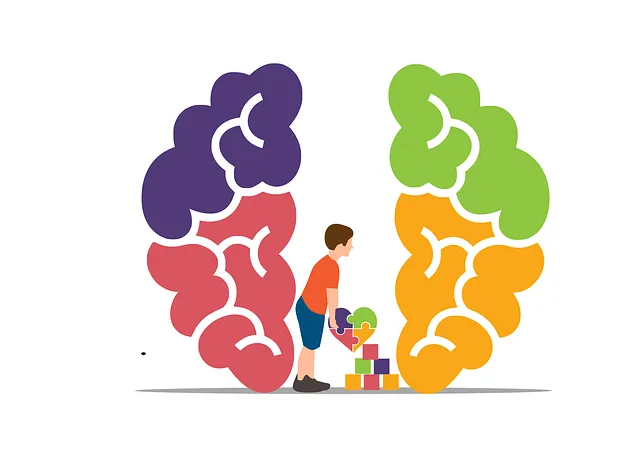Broomfield Kaiser Permanente Psychiatry is enhancing patient care through a revolutionary RFM framework, combining risk assessment, resilience cultivation, and motivation coaching. This personalized approach empowers patients with mental wellness tools, fostering an empowered community that actively builds resilience and manages stress. Using data-driven methods and best practices in stress reduction, they ensure continuous improvement and optimal patient outcomes, reflecting their commitment to holistic emotional well-being.
“Resilience is a vital asset in healthcare, especially in managing stress and enhancing patient well-being. This article explores the implementation of RFM (Resource, Fortitude, and Mastery) exercises in Broomfield Kaiser Permanente Psychiatry, a pioneering approach to build resilience. We delve into the process, from understanding RFM’s impact on mental health to practical strategies for integrating these exercises into clinical settings. By examining success measures and continuous improvement, this piece offers insights into fostering resilience within healthcare institutions, particularly focusing on the Broomfield Kaiser Permanente psychiatry team.”
- Understanding RFM and Its Application in Healthcare Settings
- Implementing Resilience-Building Exercises at Broomfield Kaiser Permanente Psychiatry
- Measuring Success and Continuous Improvement Strategies
Understanding RFM and Its Application in Healthcare Settings

At Broomfield Kaiser Permanente psychiatry, understanding RFM—a powerful framework for assessing and enhancing resilience—is transforming patient care. RFM, which stands for Risk, Resilience, and Motivation, provides a structured approach to identifying individuals’ vulnerabilities while cultivating their inherent capacity for emotional intelligence. This holistic view enables healthcare professionals to tailor interventions effectively, focusing on building mental wellness coaching programs that cater to each patient’s unique needs.
By integrating public awareness campaigns development into the RFM model, Broomfield Kaiser Permanente psychiatry fosters an environment where patients feel empowered to navigate life’s challenges. These initiatives not only raise understanding of emotional intelligence but also encourage proactive engagement in resilience-building exercises. As a result, patients are equipped with the tools necessary to promote their own mental wellness and adapt to stressful situations, leading to improved outcomes and enhanced quality of life.
Implementing Resilience-Building Exercises at Broomfield Kaiser Permanente Psychiatry

At Broomfield Kaiser Permanente Psychiatry, we’ve recognized the profound impact that resilience-building exercises can have on our patients’ emotional well-being promotion techniques. By integrating these powerful practices into our treatment plans, we’re not just addressing symptoms; we’re empowering individuals to embrace positive thinking and cultivate a deeper sense of inner strength. This holistic approach is grounded in the core principles of mind over matter, encouraging patients to reframe challenges as opportunities for growth.
Our team has meticulously designed a range of exercises tailored to meet diverse needs, ensuring that each individual can find their own unique path to resilience. These sessions aren’t just about coping mechanisms; they’re transformative experiences that equip our patients with the tools to navigate life’s storms with grace and perseverance. Through these initiatives, Broomfield Kaiser Permanente Psychiatry continues its mission to enhance not only mental health but also the overall quality of life for every patient we serve.
Measuring Success and Continuous Improvement Strategies

Measuring success is a critical component of any resilience-building program. At Broomfield Kaiser Permanente psychiatry, we utilize a multi-faceted approach to assess the effectiveness of our exercises and workshops. This includes both qualitative and quantitative methods, such as participant feedback surveys and tracking key performance indicators (KPIs) related to stress levels and emotional well-being. By collecting and analyzing this data, we gain valuable insights into what’s working and where there’s room for improvement.
Continuous improvement is integral to our strategy. Based on the data gathered, we adjust and refine our exercises and workshops to better meet the needs of our participants. This dynamic process ensures that our programs remain relevant, effective, and aligned with best practices in stress management. Additionally, we foster a culture of open communication, encouraging feedback from both attendees and facilitators, which allows us to continuously evolve and enhance the overall experience, reflecting the latest research in confidence-boosting Stress Reduction Methods within our organization.
The implementation of RFM and resilience-building exercises in healthcare settings, as demonstrated by Broomfield Kaiser Permanente psychiatry, offers a promising approach to enhancing staff well-being. By fostering resilience, these initiatives can improve job satisfaction, reduce burnout, and ultimately contribute to better patient care. Continuous improvement strategies, including regular measurement of success, ensure that these programs remain effective and tailored to the unique needs of healthcare professionals. This comprehensive approach is vital for creating a sustainable and supportive work environment in today’s demanding healthcare landscape, particularly at Broomfield Kaiser Permanente psychiatry.






